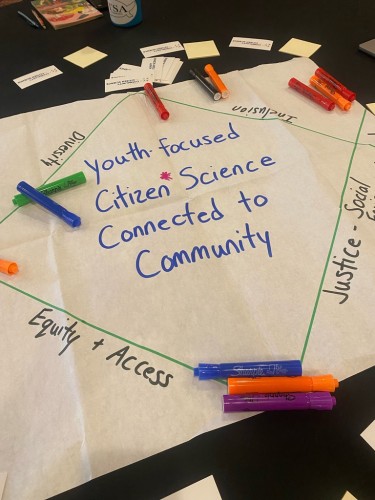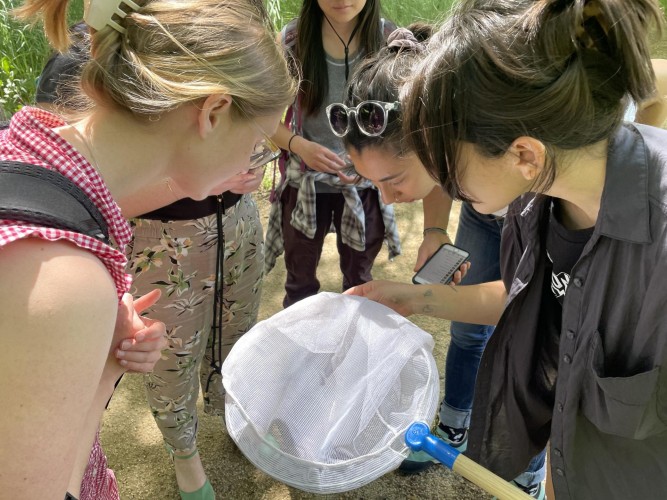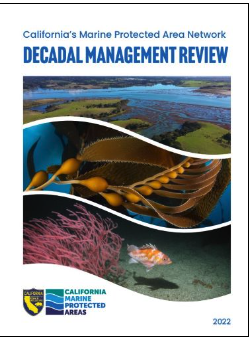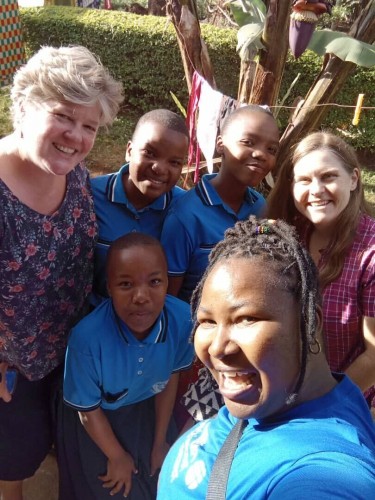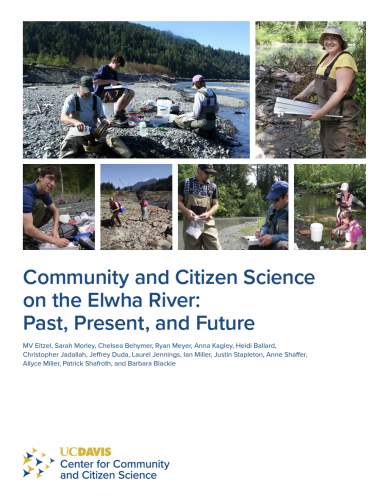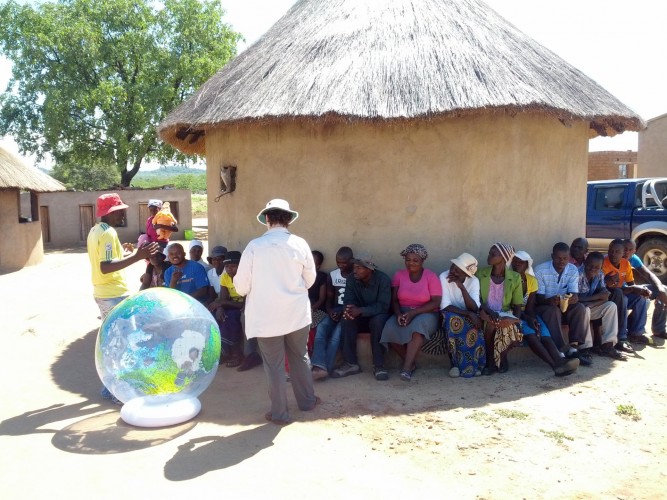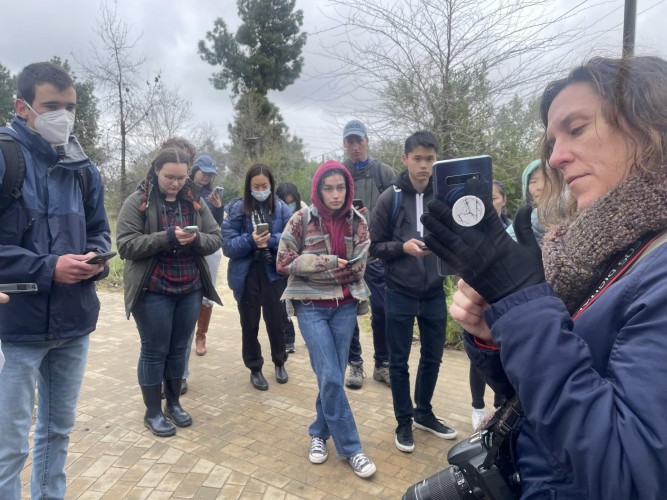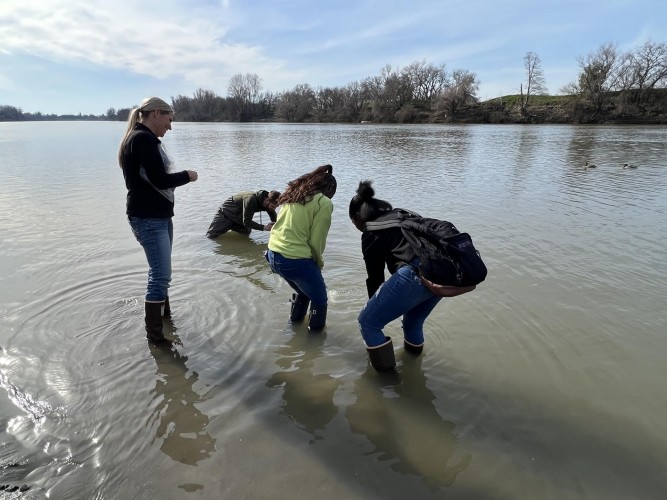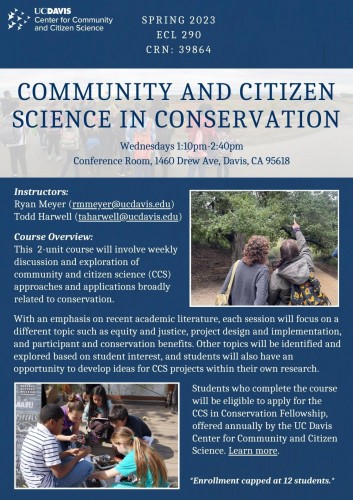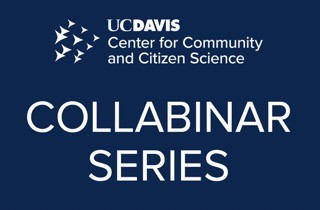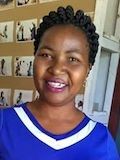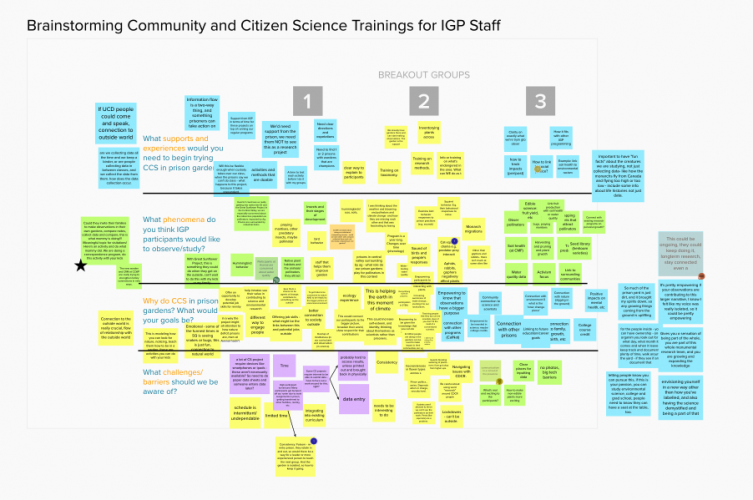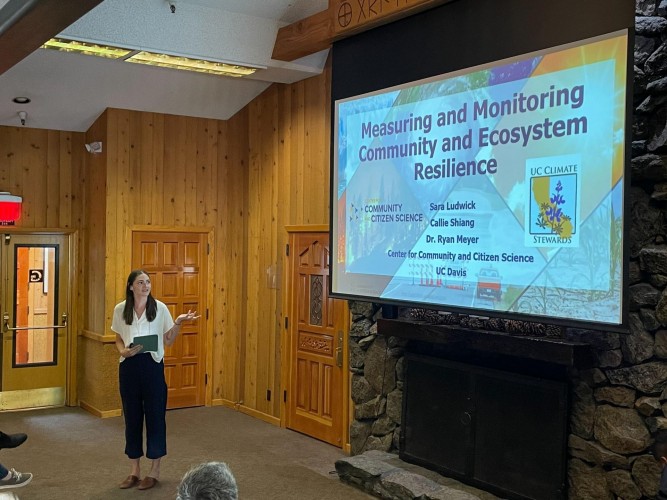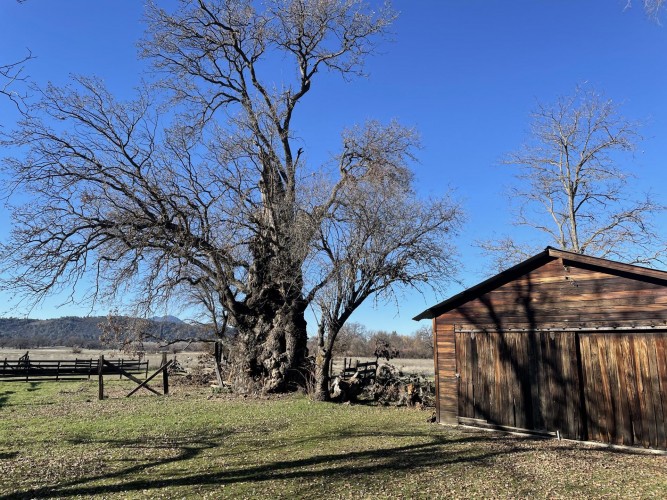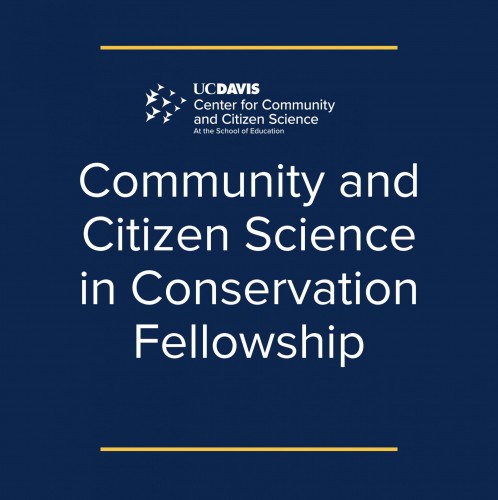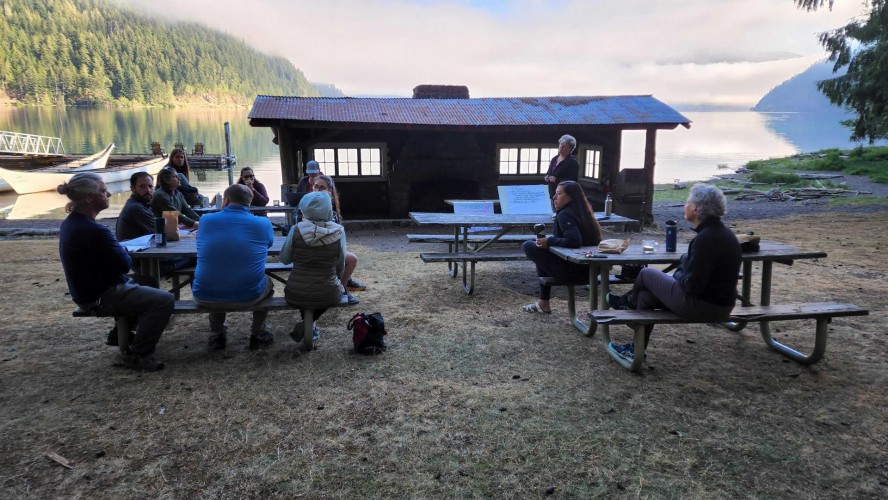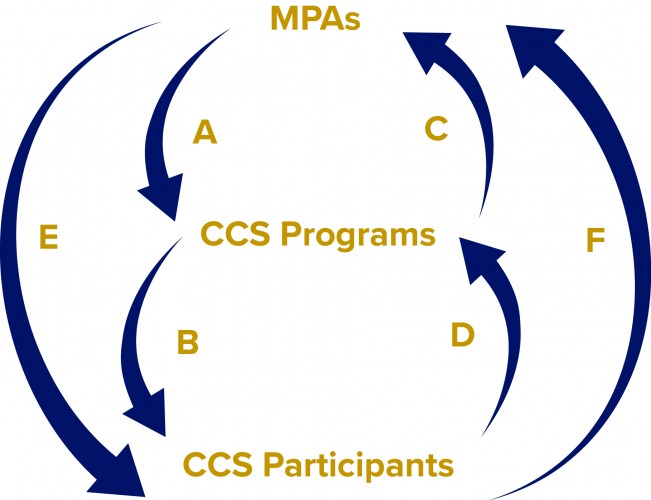Center for Community & Citizen Science Blog
Find us at C*Sci 2023
Join the UC Davis Center for Community and Citizen Science at the listed events during the Citizen Science Association’s C*Sci 2023 conference in Tempe, Arizona! Find the full conference schedule here.
Kicking off the 2023 City Nature Challenge Sacramento
Eighth annual challenge grows to over 450 participating cities on six continents; results announced on May 8
The Center for Community and Citizen Science is excited to once again host the City Nature Challenge for the Sacramento Region. As community and citizen science initiatives build momentum around the world, this year’s eighth annual City Nature Challenge includes more than 450 cities across six continents. Kicking off April 28 at 12:01 am in each time zone, the Challenge runs through May 1, 11:59 pm.
Building on ten years of support and partnerhip:
How can California sustain and improve the role of Community and Citizen Science in MPAs?
Together with our partners at the California Academy of Sciences, our MPAs team has submitted a public comment for the April 2023 meeting of the California Fish and Game Commission, urging the state to build on 10+ years of support and partnership, which brought more than 80,000 people into the process of marine protected area monitoring in California.
From California to Tanzania and Back Again
Creating an educational and culturally-relevant environmental monitoring program for youth in northeast Tanzania
Could Community and Citizen Science not only support Science AND English teachers to teach in hands-on ways, but also help to feed students in Tanzania schools? Based on our recent collaboration, the answer is Yes!
Report: Summary of Community and Citizen Science on the Elwha River
The UC Davis Center for Community and Citizen Science team has been working with researchers on the Elwha River in Washington state for more than a year now, and we are proud to share a new report summarizing what we have learned about Community and Citizen Science on the Elwha.
UC Davis Global Affairs Grant Helps Advance Sustainable Development Goals via the work of The Muonde Trust in Zimbabwe
On March 9th, Postdoc M.V. Eitzel and Center Director Ryan Meyer (along with Pamela Reynolds from UC Davis DataLab and Sarah Mccullough from UC Davis’ Feminist Research Institute) were honored at a reception hosted by UC Davis’ Global Affairs program. Global Affairs has awarded them a grant to build on M.V.’s past work with The Muonde Trust.
Warming up for the City Nature Challenge 2023 with UC Davis Wildlife Society Bioblitz
Just shy of 20 intrepid UC Davis students braved the cold for a morning Bioblitz at the UC Davis Arboretum in February. The purpose of this event was to introduce iNaturalist, practice making observations, and explore the nature in the Arboretum together. It was organized for The Wildlife Society club at UC Davis, with Laci Gerhart and Sarah Angulo facilitating.
Project Update: Field trips connect to classroom learning
Spinning Salmon in the Classroom Project
It’s a cold February morning at River Bend Park in Oroville. We’re standing with UC Davis Center for Watershed Sciences’ Carson Jeffres, waiting patiently for the bus to arrive from Red Bluff High School. A truck towing a boat backs down the boat ramp where we’re waiting to meet the high school students that have participated in the Spinning Salmon in the Classroom project this winter.
Designing for Science Learning in Schools by Leveraging Participation and the Power of Place through Community and Citizen Science
This post was originally featured as a part of the Community for Advancing Discovery Research in Education’s project spotlights. This Spotlight features DRK-12 collaborative projects, provides insight into the affordances and challenges of partnering with multiple organizations, and offers advice for those considering a collaborative proposal. Click here to visit the project Spotlight.
ECL290: A Course on Community and Citizen Science in Conservation
This coming spring, the Center for Community and Citizen Science will be offering a 2 unit “Community and Citizen Science in Conservation” course at UC Davis. The course will involve weekly discussion and exploration of community and citizen science (CCS) approaches and applications broadly related to conservation. With an emphasis on recent academic literature, each session will focus on a different topic such as equity and justice, project design and implementation, and participant and conservation benefits.
Collabinar: Analyzing Large CCS Datasets
March 7, 2023
Outcomes of analyzing CCS data from iNaturalist and eBird
Tuesday, March 7, 2023
12:00 – 1:00 PM PST
Collabinar: Catherine Njau and school garden community and citizen science in Tanzania
February 17, 2023
Co-creating an educational and culturally-relevant environmental monitoring program for youth in Northeast Tanzania
Friday, February 17, 2023
12:00 – 1:30 PM PST
Project Update: Piloting Citizen Science in Prison Gardens
People in prison are taking part in real science in collaboration with UC Davis researchers.
This post is cross-posted from the UC Davis Public Scholarship and Engagement blog. Click here to view the original post.
Project Update: Measuring and Monitoring Community Resilience with the Climate Stewards Program
The Center collaborated with UC Agriculture and Natural Resource’s California Naturalist program to offer an evaluation of a community resilience assessment tool used within the Climate Stewards course, and to identify community and citizen science projects that could support the program’s resilience efforts.
Project Update: Inspirations after a visit to Lake County
Since July 2022, the Center for Community and Citizen Science has been steadily working on a project in collaboration with the UC Davis Center for Regional Change to build capacity for environmental education (EE) and community and citizen science (CCS) in the Clear Lake region.
Our inaugural 2022 CCSiC Fellows
The Center’s statement on the UC-wide strike
Dear Center for Community and Citizen Science colleagues:
We want to acknowledge the difficulties student researchers may be facing professionally and personally with the strike taking place across the UC system beginning Nov. 14, 2022. The high quality research from our Center is dependent on the work of student employees and postdoctoral scholars. We want to emphasize our support for the research work everyone is engaged in with the Center, and also support our students’ rights to fight for equitable working conditions. We also commit to not retaliating against any who choose to strike. Find information and updates here.
Get to Know Our New Graduate Students, Emma and Jadda
The beginning of the new academic year brought two new faces to the Center. We’re excited to welcome Emma Schectman and Jadda Miller as they begin their graduate student work in the School of Education. We can’t wait to see what amazing things they’ll do in the coming years. Learn more about them:
Project Update: Supporting Community and Citizen Science at the Elwha ScienceScape Symposium
The removal of two large dams from the Elwha river in the ancestral lands of the Coast Salish peoples was the first large-scale dam removal of its kind in the world. This effort has inspired many other watershed-scale restoration projects and dam removal organizations both nationally and internationally.
Project update: Community and citizen science in California’s Marine Protected Areas
Moving forward with our research and expanding into Oregon's Marine Reserve System
Since submitting our partner report for the Decadal Management Review of MPAs process, we have been working on a second phase of research to dive deeper into some of the dynamics and nuances of the relationships between the MPA Network and community and citizen science (CCS) programs.





